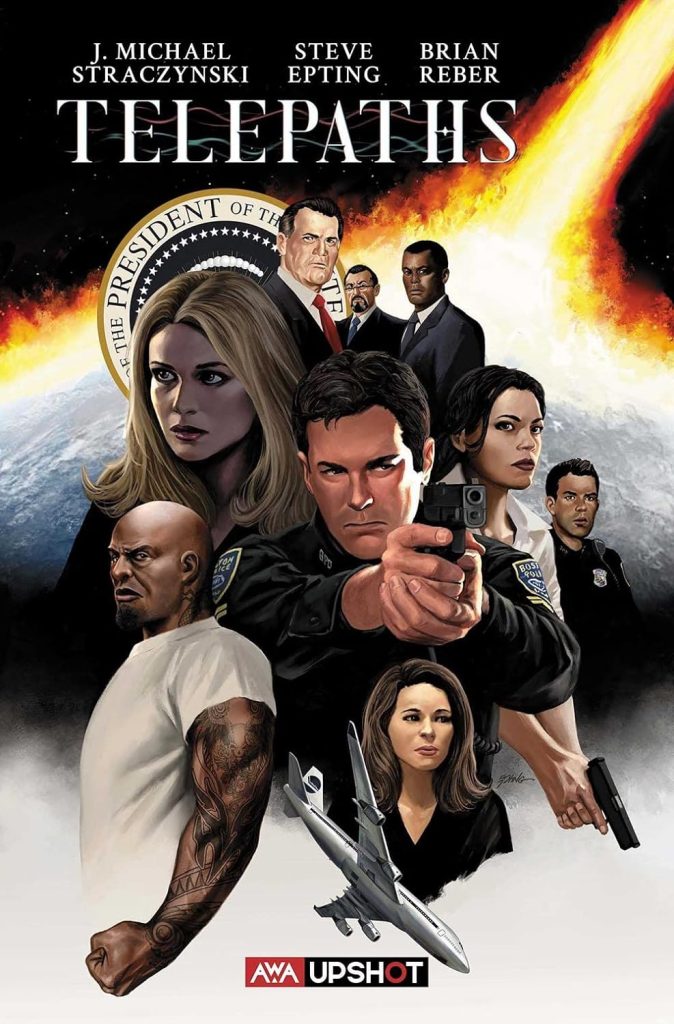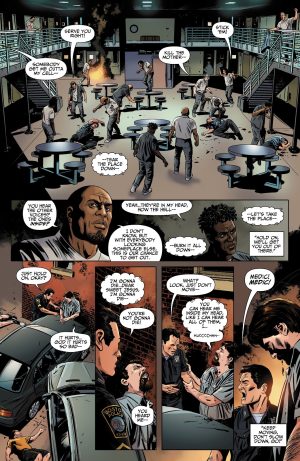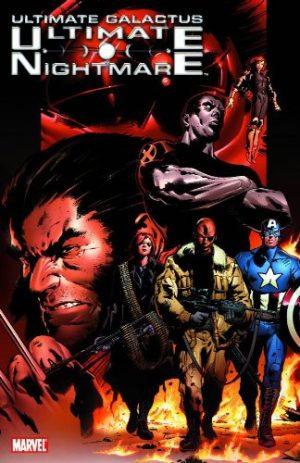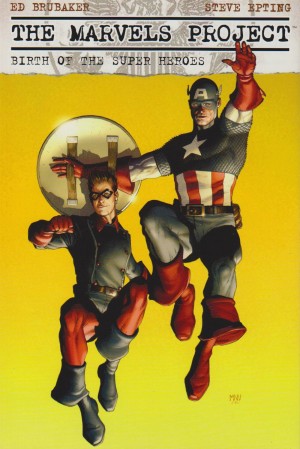Review by Frank Plowright
J. Michael Straczynski spends a long time introducing his cast over the opening chapter, the purpose being to ensure we know them before the main story crunches into action. As the title suggests, it concentrates on people who can suddenly read the minds of others in their vicinity or even control them, the result of being energised by an enormous solar flare causing the entirety of humanity to lose consciousness for thirty minutes. Disastrous consequences result during that period, so Straczynski takes another spin around the cast he’s already introduced.
The starting thesis seems to be that we’ve become a society that accepts constant monitoring under the guise of safety, so how will those doing the monitoring cope when they can no longer maintain their secrets? Straczynski’s cast run the gamut from those with a genuine desire to protect people to the utterly selfish for whom might is right, and sets everything in place for a thriller.
This type of material looks best under an artist striving for realism, and Steve Epting ticks that box, providing page upon page of people acting naturally and varying the viewpoints to ensure conversations never look dull. The initial thought is that the accompanying disasters were introduced to give him something more interesting to draw, because as seen with Professor X, mind-reading is hardly the most visual super power. However, things move on, and that’s when Telepaths dips from a story with potential into something not as interesting.
It’s an unconventional mistake from Straczynski, whose dramatic instincts are usually sound. Instead of restricting the mental abilities to mind-reading, he expands the possibilities, and by midway all kinds of super powers are manifesting, and while there are very few graphic novels exploring the effects of telepathy in an otherwise real world, new superhero projects are commonplace. Straczynski narrows the world view to a bunch of escaped convicts with an agenda, the Boston police attempting to corral them, a professor there for explanations, and a member of the President’s security detail. Costumes are absent, Straczynski’s stronger on credible motivations than the standard superhero story, and there’s a well foreshadowed revelation toward the end, but Telepaths becomes ordinary very quickly.
The ending notes this as a first volume, so although presenting a complete story that can stand alone, it seems this is a world Straczynski intends to return to. Perhaps as he expands the view and begins to look at other areas Telepaths will become more original, but as it stands this is a beautifully drawn missed opportunity.





